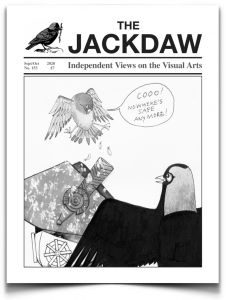When very young, and when not train spotting, I was a keen bus spotter. It was an ideal apprenticeship for a fledgeling art historian. It involved identifying, sometimes at a considerable distance (through rain), the beautifully crafted, hand-built models, of which there were many different marques and specifications. Every town corporation in the county had its own company, each with its distinctive colour combinations and decorative embellishments. All of these buses were built in England: for example, Crossley’s, whose factory was only a few streets from our house in east Manchester, built a splendid three-axle trolleybus for the Denton run up Hyde Road. By the age of ten I could have told you where I was – Rawtenstall, Stalybridge, Bolton, Ramsbottom – by their buses. My two favourites were Crosville’s single-decker Bristols and Lancashire United’s Foden double-deckers (ex-Sandbach) with their Art Deco frills. Identification could often be established by sound alone. The Bristol whined through its gears and even bouncing downhill roared alarmingly as though it was straining in bottom. The Foden’s engine turned over with a reassuring metallic tick, not unlike a loud blackcap.
In 1970 I visited Holland for the first time arriving at Rotterdam railway station via a local stopping train through polder landscape from The Hook – the diesel was bright yellow and blue with a blunt bull nose, quite unlike the flat-faced, toilet-green electrics on our local line (built at Wolverton Works). Everywhere were whiffs of Art Nouveau. Tendrils, ogives and curlicues cut no ice in Manchester; we liked bricks, circumcised chimneys and oblong windows. The art of Mondrian, Vantongerloo, van Doesburg and van der Leck here made thrilling, perfect sense. Colours were primary, graphics Symbolist, planning rational – here Modernism was alive. Lancs looked nothing like this. Thus, we got Lowry and they produced Rietveld: Oldham Road Dwellings versus the Schroder House… I still love both.
These geriatric musings were prompted by a news report from Birmingham. A councillor was expressing delight with the city’s new trams. “They give a real European feel to Birmingham,” she trilled in that comical voice they have – a royal Europeen foil. “We look as though we’re royally part of Europe now.” Indeed indeed, Brum’s trams were designed and built (like Edinburgh’s) outside San Sebastian. From Eindhoven to Berlin, Toulouse and Bratislava Brum’s trams now await at every Ryanair outpost.
Manchester also has an expanding tram network. Nippy and frequent they’re criminally dear but, like Brum’s, our trams are ever so European … they are even owned by the French company that runs the Paris Metro. And if on your travels you happen to visit Cologne, Croydon or Blackpool (which until 2012 had unique double-decker trams with streamlining and two-way seats) you’ll see Manchester’s trams there as well, because they’re built by the same lot in Germany and southern Spain.Two days after this issue goes to press the referendum takes place. My grouse with the EU is that it’s meddling regulations have contributed significantly to making everything and everywhere look the same. By insinuating uniformity it has replaced difference with committee-induced sterility. But why must Birmingham or Blackpool have to look like Budapest? And what sly brainwashing has been sneaked through to convince municipal jobsworths that such pan-European overlaps are in any way desirable? You might as well walk around Europe now with eyes closed because you know that flats and offices, clinics and swimming pools, buses and trams, cars and vans will look just like home, because they are the same, and all dictated from Brussels (whose own trams, incidentally, also mimic Manchester’s because they derive from the same production line near Dresden). The homogenising of appearances resulting in the visual poverty of surroundings, courtesy of the EU, is the most grievous cultural loss of my lifetime. Before we joined the EU, streets across our continent were a free museum and immeasurably more stimulating to experience than they are now. It is precisely because anything but variety is unendurable that I loathe the EU.


